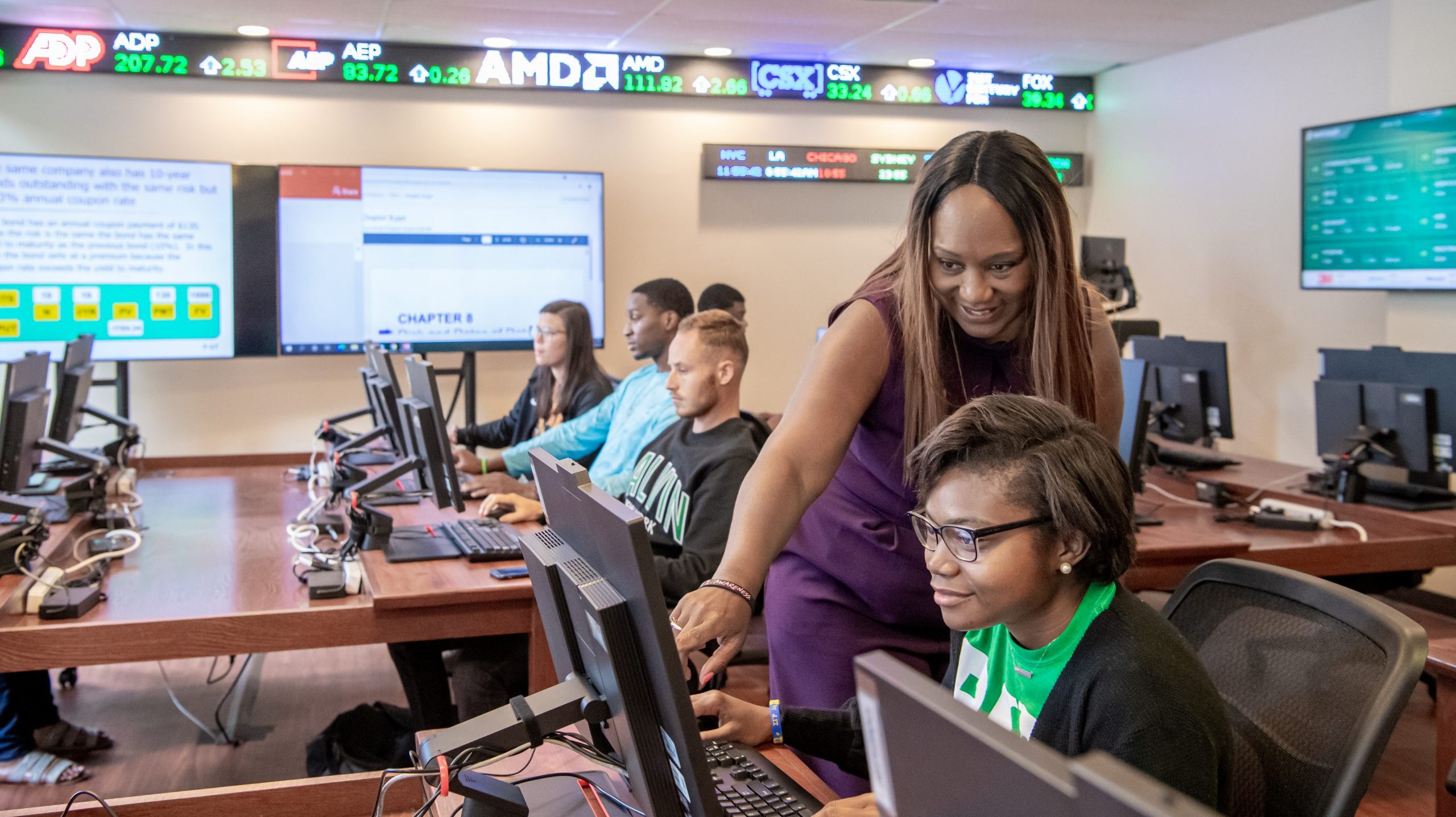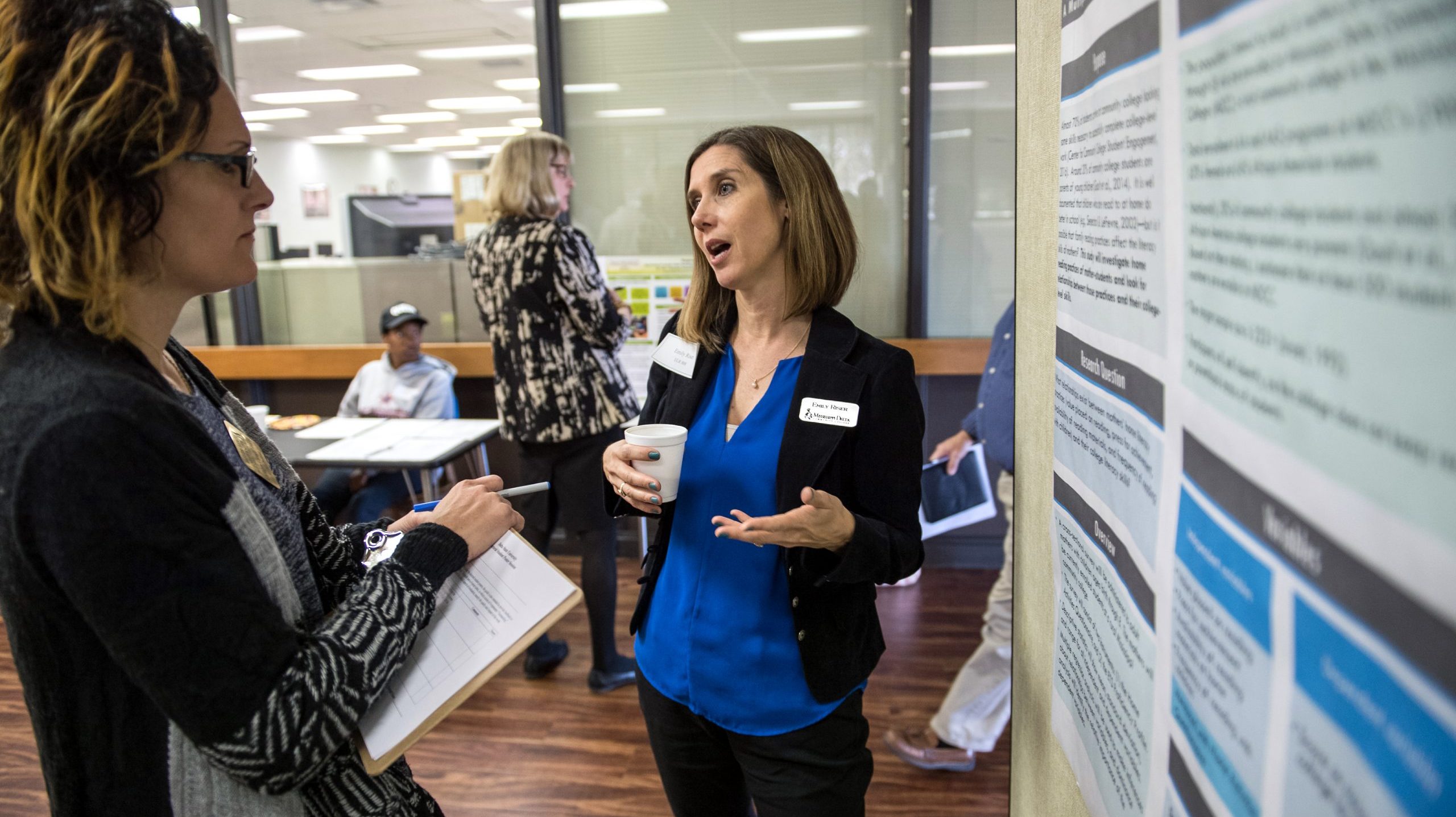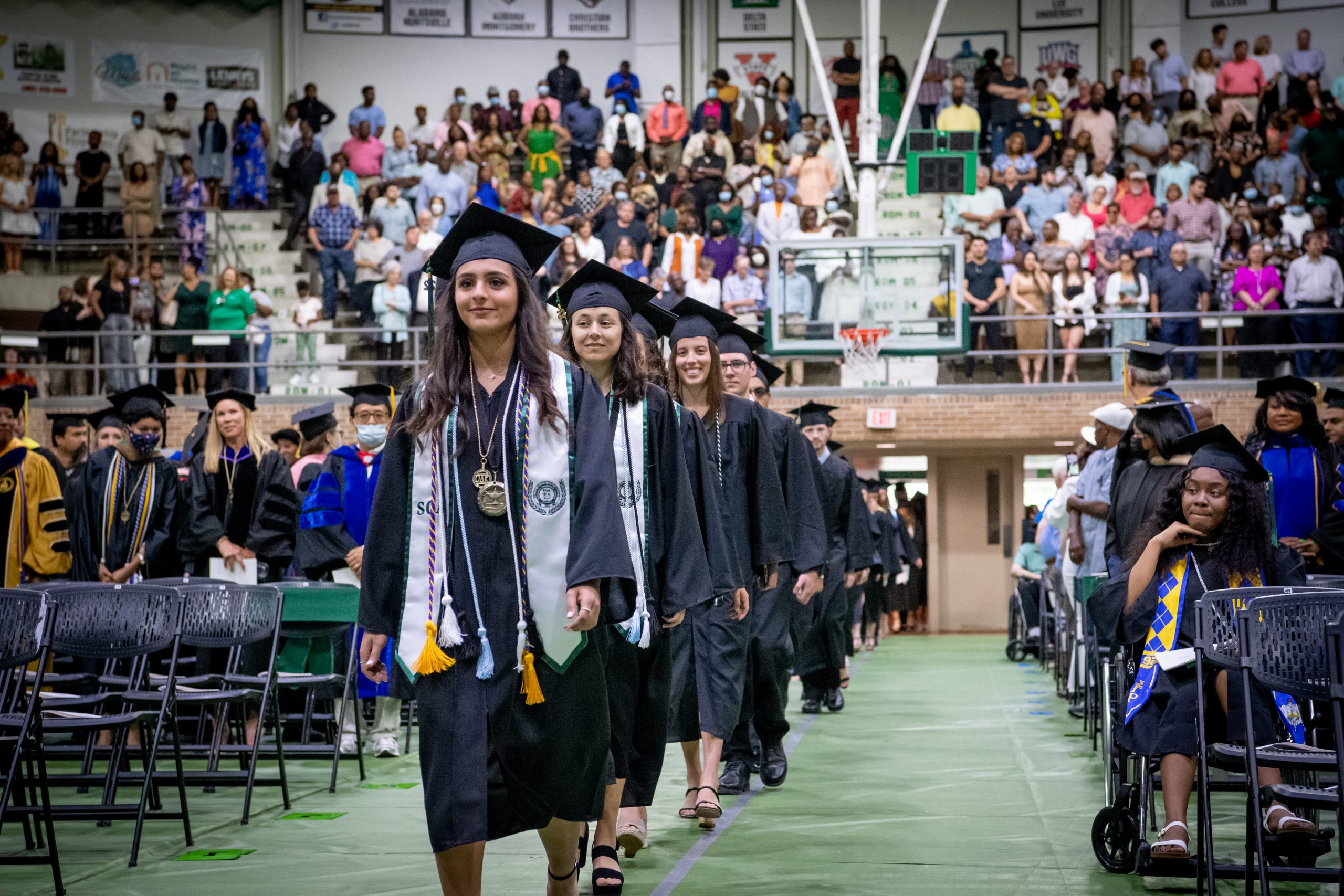The Delta State Difference:
With more than 20 undergraduate programs, 15 graduate programs, and 2 doctoral programs, Delta State academic programs offer a unique approach that tailors to each student’s interests and career goals. Our faculty members are passionate and committed to providing the best education possible, and we offer students a range of resources, including personalized advising, tutoring and a supportive Student Success Center. Our academic programs at Delta State prepare students for success—both in and out of the classroom—to ensure they’re ready for whatever path they choose after graduation.
Undergraduate and Graduate Programs
Student-Faculty Ratio
Online Programs
Find Your Academic Program and Get on Your Path
Undergraduate: Opportunities to Achieve More

Delta State academics offer a range of undergraduate programs that prepare our students for success in their future careers. With over 20 undergraduate programs to choose from, you’ll have plenty of opportunities to find the one that’s right for you. We also offer an Honors Program for gifted students who want to take their education to the next level. In our undergraduate catalog, you’ll find detailed information on academics at Delta State, courses, and requirements, as well as academic policies and procedures.
Graduate: Advance Your Studies, Take Hold of Your Dreams

At Delta State, we understand that graduate education is a crucial step towards achieving your career goals. That’s why we offer 12 master’s degree programs, 3 specialist degree programs, and 2 doctoral programs to help you advance your studies and take hold of your dreams. In our graduate catalog, you’ll find detailed information on academics at Delta State, admission requirements, course descriptions, and more.
Continuing Education: For Those Who Love to Learn

Delta State University’s Continuing Education program is designed for learners who want to continue their learning journey and achieve personal or professional goals. Our program offers a wide range of non-credit courses and workshops that are open to the public, including professional development courses, art classes, and personal enrichment classes. Our courses are taught by industry experts and are designed to help you acquire new skills, broaden your horizons, and achieve your personal and professional goals.
Online Programs for Flexible Learning

Our online programs include undergraduate and graduate degrees, as well as certificate programs, and are designed to provide you with the same high-quality education and resources as our on-campus programs. With our online programs, you’ll be able to learn on your own schedule from anywhere in the world, making it easier than ever to balance your academic, personal, and professional commitments.
College of Business and
Aviation

The College of Business and Aviation at Delta State is committed to preparing students for successful careers in business and aviation. With programs in accounting, management, computer information systems, geospatial analysis and intelligence, marketing, and aviation, the College offers students a wide range of options to pursue their passions. The College also houses the only bachelor’s and master’s aviation degree program in the state, preparing students for a variety of opportunities in the fast-growing industry.
College of Education, Arts,
and Humanities

The College of Education, Arts, and Humanities at Delta State University is committed to fostering critical thinking, creativity, and professional excellence. Offering a range of undergraduate and graduate programs, the College prepares students for rewarding careers in education, the humanities, social sciences, and the arts. Students benefit from a well-rounded education and gain hands-on experience through internships, practicums, and student teaching, equipping them for success in various fields.
College of Nursing, Health,
and Sciences

The College of Nursing, Health, and Sciences at Delta State University provides a comprehensive education in nursing, health sciences, and related fields. Offering a range of programs, the College prepares students for careers in nursing, biology, environmental science, speech and hearing sciences, counseling, social work, and health and human performance. Known for its high-quality education, the College emphasizes academic excellence and hands-on training to equip students for success in the healthcare industry.
Graduate Studies

Delta State’s Graduate & Continuing Studies program is designed for students who want to continue their education and advance their careers. The program offers a variety of graduate and professional development courses, as well as 15 fully-online degree programs in areas such as business, education, nursing, and social sciences. The programs provide students with the knowledge and skills they need to succeed in their chosen fields, and faculty members are experienced professionals with extensive industry knowledge.
Summer School at Delta State

Delta State’s Summer School program is designed for students who want to accelerate their education and earn credits during the summer months. The program offers a variety of undergraduate and graduate courses and is ideal for students who want to catch-up or get ahead in their studies. Each course is taught by experienced faculty members who are committed to providing students with a challenging and rewarding learning experience.
Academic Advising to Chart Your Course
Academic advisors at Delta State are dedicated faculty who provide individualized attention and support to students as they navigate their academic journey. They help students develop a plan for their academic career, choose courses that align with their goals, and ensure that they stay on track to graduate on time.
Academic Maps to Track Your Course
Delta State University’s academic maps are designed to help students stay on the right track to graduation. These maps provide a clear and concise guide to completing degree requirements in a timely manner, allowing students to focus on their studies and plan for the future. The maps are available for all undergraduate degree programs and are created in consultation with academic advisors, department chairs, and faculty members to ensure accuracy and relevance.
Student Success Center to Support All Your Academic Needs
Academic Advising and the Student Success Center at Delta State provide different services to help students achieve their academic goals. While Academic Advising offers personalized guidance on course selection and academic planning, the Student Success Center offers a broader range of resources, such as tutoring and workshops. By utilizing the resources of the Student Success Center, students can enhance their academic performance and stay on track toward graduation.

